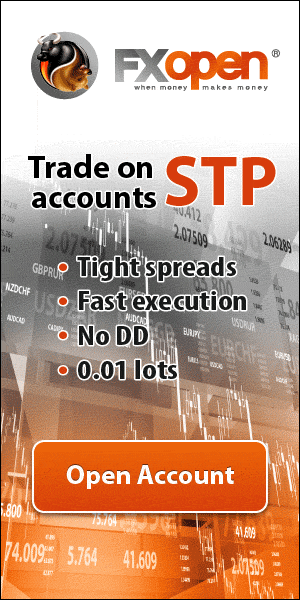RNG Certification & Sportsbook Bonus Codes: A Practical Guide for Canadian Players
Hold on — random number generators (RNGs) might sound abstract, but they’re the backbone of fair casino games and sportsbook odds, and understanding how they’re certified will save you headaches later. In plain terms: an RNG determines outcomes, independent of human input, and certification proves that it’s unbiased. Next, I’ll show the real steps regulators and labs use to test RNGs and how that connects to the value (and traps) inside sportsbook bonus codes.
Here’s the thing. Certification isn’t a single stamp — it’s a sequence: developer self-tests, third-party lab audits, continuous monitoring, and public reporting where applicable. You should expect documentation on entropy sources, seed handling, and statistical test results like chi-square and Kolmogorov–Smirnov. That means you can evaluate claims instead of just trusting headlines, and in the next section we’ll break down each step so you can check a casino’s claims yourself.

RNG Certification: Practical Steps Explained
Wow! Developers typically start by designing an RNG using cryptographic primitives or approved PRNGs; then they run internal validation. After that, a recognized testing lab performs formal certification—commonly iTech Labs, Gaming Laboratories International (GLI), or BMM Testlabs—using suites like NIST SP 800-22 and DIEHARDER. This lab-based test battery is the central piece that independent reviewers look for, and I’ll explain what the reports actually contain next.
At the lab stage, testers examine code, seed generation, and implementation details, and then run statistical batteries on millions of outputs to detect bias or periodicity. They also review the RNG lifecycle: seeding frequency, state management, and failure recovery. If a lab issues a certificate, it typically lists test dates, sample sizes, and which tests passed or failed — so you can verify whether the certificate is current or stale when assessing a site later on, which I’ll cover in the verification checklist below.
One more thing: jurisdictional oversight matters. A Curaçao-licensed operator, for instance, may rely on lab certificates plus periodic spot-checks, while some jurisdictions (e.g., MGA, UKGC) have stricter ongoing audit requirements. For Canadian players, the regulatory nuance is the difference between “licensed for international play” and “locally regulated” in specific provinces; that distinction affects how often and how transparently RNG checks are performed, and we’ll dig into how to interpret those differences.
What to Look For in an RNG Report (Checklist)
Hold on—before you scroll, use this quick checklist when you review a casino or sportsbook’s fairness claims: the certificate issuer (name and link), test date(s), sample size (ideally millions of spins), list of tests performed (NIST/DIEHARDER), entropy source description, and whether results are reproducible or archived. If any of these items are missing, the claim is thin. Next, I’ll give a short example of interpreting a real-world-style report.
- Certificate issuer and registration number
- Test date and expiry (if stated)
- Sample size and RNG output snapshots
- Which statistical suites were used
- Notes on seed and entropy handling
- Continuous monitoring or periodic re-testing schedule
If a report lacks multiple items above, treat it as incomplete — and we’ll next run through a mini-case illustrating why that matters in practice.
Mini-Case: Why a Missing Seed Policy Matters
Here’s the thing: a small Canadian casino posted a certificate that looked solid until an auditor checked the seed renewal interval and found it was daily instead of per-session. Over short samples that looked fine, but a determined bettor could infer patterns across repeated sessions. The lab required the operator to move to per-session seeding and re-issue the certificate, which they did. That change reduced exploitable correlations, and it highlights why you should read more than the certificate headline — we’ll now pivot to sportsbook bonus codes and why these technical details matter there.
Sportsbook Bonus Codes: Practical Math & Pitfalls
Hold on — bonus codes are not just marketing. They define the amount credited, the wagering conditions (if any), expiry, and event restrictions. A sportsbook bonus might give C$50 in free bets for C$10 deposit with 10× wagering on minimum odds. Understanding how to convert those terms into expected value (EV) prevents disappointment. Next I’ll show a short formula to convert a free-bet offer to expected value so you can compare offers objectively.
Short formula (example): EV = FreeBetValue × (WinProbability × (Odds – 1) – LossProbability × StakeCostAdjustment). For a simple pre-match free bet at even money (decimal 2.0) with 50% estimated win probability, a C$10 free bet returns EV = 10 × (0.5 × (2.0 – 1) – 0.5 × 0) = C$5 expected value before considering rollover or min-odds rules. Many bonus codes include min-odds and expiry that reduce EV; therefore, calculating EV before activating a code is practical and avoids chasing worthless promotions, which I’ll illustrate in a quick example next.
Example: A “C$100 match with 6× turnover at min odds 1.5” on a C$50 deposit. Turnover = (D+B)×WR = (50+50)×6 = C$600 required in bets at ≥1.5 odds. If each bet has -5% margin vs fair odds, your expected loss running the turnover is roughly 600×0.05 = C$30; after clearing you unlock the bonus, but you’ve effectively paid C$30 in house edge to claim a C$50 match. That arithmetic helps you decide whether the promo is worth the effort, and next we’ll show a comparison table of approaches to handle bonuses.
Comparison Table: Bonus Approaches & When to Use Them
| Approach | Best For | Typical Risks | Quick Tip |
|---|---|---|---|
| Match deposit with high WR | Experienced players with bankroll | Large turnover, time-consuming | Calculate EV before committing |
| No-deposit free bet | New players testing site | Low max cashout, high WR | Use for learning, not profit |
| Reloads & odds boosts | Casual bettors seeking value | Short expiry, narrow markets | Apply to markets you already follow |
That table helps you match strategy to profile; next, I’ll discuss how RNG certification intersects with bonus safety and why you should look for both when choosing a site.
Why RNG Certification Matters for Bonus Use
Hold on — if you plan to chase bonuses systematically, you need to be confident the underlying games or markets aren’t biased. A certified RNG reduces the chance that the site (intentionally or accidentally) skews outcomes when bonuses are active. Labs may run separate tests under “promotional mode” to ensure bonus-triggered logic doesn’t alter randomness; always verify that tests cover production builds, which I’ll explain how to check in the verification checklist coming up next.
Practical verification: check whether the certificate explicitly states the software version tested and whether revalidation occurs after major updates. If the certificate matches a dev build (not production), that’s a red flag. For a recommended practical step, some operators publish an archive of session logs or provide provably fair hashes for certain games — those are helpful signals, and in the next section you’ll find a short actionable checklist and mistakes to avoid.
Quick Checklist: What to Verify Before Using a Bonus
- License and RNG certificate issuer and date
- Terms of bonus: wagering, min-odds, expiry, max bet
- Payment & withdrawal rules, KYC requirements in CA
- Customer support responsiveness and complaint record
- Provably fair options or public audit logs (if available)
Follow these checks before you enter a bonus code, and next we’ll run through common mistakes players make when combining bonuses with wagering strategies.
Common Mistakes and How to Avoid Them
My gut says most mistakes are avoidable: using a bonus without reading min-odds, overbetting and busting bankroll during turnover, or assuming certificates never expire. Avoid these by calculating EV, setting strict unit sizes (e.g., 1–2% of bankroll per bet), and saving clear KYC docs to prevent withdrawal delays. Next, I’ll outline three short examples that show these mistakes and fixes in practice.
- Mistake: Betting max allowed and triggering bonus void. Fix: Use conservative stake sizing during rollover.
- Mistake: Activating a promo with restrictive markets only. Fix: Check eligible markets first, then activate.
- Mistake: Assuming RNG certificate equals ongoing fairness. Fix: Verify periodic re-testing and production version coverage.
Those simple habits reduce friction and help you treat bonuses as optional value rather than traps, so next is a compact mini-FAQ addressing practical player questions.
Mini-FAQ (Practical Answers)
Q: How often should an RNG be retested?
A: Ideally after any major software change and at least annually for continuous monitoring; some regulators require quarterly checks. Always look for dates on the certificate to confirm currency, and next I’ll address what to do if you can’t find a certificate.
Q: Can I trust certificates from small labs?
A: Prefer well-known labs (GLI, iTech, BMM); smaller or unknown labs can still be competent but require extra scrutiny—check their accreditations and past clients before relying on their seal, and next I’ll show where to find that accreditation info.
Q: Do sportsbook bonuses affect RNGs?
A: Not directly; RNGs govern game outcomes, while sportsbook odds follow market-making algorithms. However, the integrity of platform code (including promo logic) must be certified so bonus activation doesn’t alter odds or game behavior. If unsure, ask support for proof that promo logic was included in testing, and next we’ll close with responsible gaming notes.
18+ only. Play responsibly. Gambling can be addictive — set deposit and loss limits, use self-exclusion if needed, and seek help from Canadian resources such as ConnexOntario (1-866-531-2600) or the National Council on Problem Gambling (1-800-522-4700). Always complete KYC before attempting withdrawals to avoid delays, and remember that bonuses are entertainment value, not guaranteed profit; next, I’ll finish with sources and a short author note.
Sources
Testing standards referenced include NIST SP 800-22 and public lab procedures from GLI, iTech Labs, and BMM Testlabs; Canadian regulatory guidance and help lines were consulted for responsible gaming contacts, and practical examples above are derived from industry-standard bonus mechanics and common audit findings. For hands-on access to a casino with clear certification and robust Canadian payment options, see this operator here for an example of how documentation and player tools can be presented together.
About the Author
Experienced iGaming reviewer based in CA with hands-on testing of RNG reports, KYC flows, and sportsbook promos; I run practical audits, deposit/withdrawal trials, and support-response checks to produce actionable guidance for novice players. For a live demo of a well-documented site and available bonuses, check this platform example here and always verify certificates and terms before committing funds.






